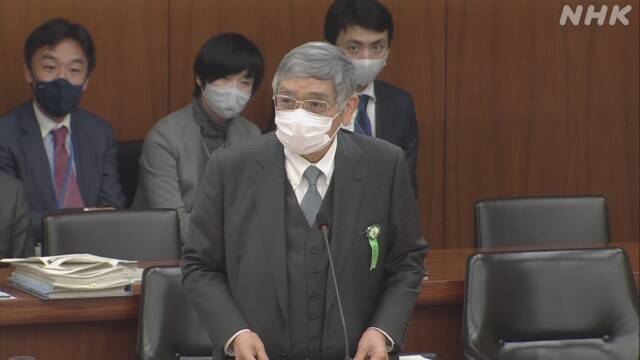With long-term interest rates on the rise, the Bank of Japan's governor, Kuroda, said, "I think it is necessary and appropriate to greatly expand the range of fluctuations in long-term interest rates that the Diet allows for the current monetary easing measures. I haven't. "
As a result, long-term interest rates have fallen sharply in the bond market.
The Bank of Japan is continuing monetary easing measures to keep long-term interest rates at around 0%, but has shown its willingness to allow interest rates to fluctuate within the range of plus or minus 0.2%.
The Bank of Japan will hold a monetary policy meeting in the middle of this month to "inspect" the current monetary easing measures, but market participants have speculated that it may widen the range of fluctuations in interest rates that it accepts. I will.
Under such circumstances, interest rates in Japan have risen sharply to the level for the first time in 5 years and 1 month last week in the wake of the recent rise in long-term interest rates in the United States, leading to unstable movements in the stock market.
The Bank of Japan's Governor Kuroda said at the Finance and Finance Committee of the House of Representatives on the 5th that the fluctuation range of long-term interest rates will be discussed in the "inspection", but I myself will greatly expand the fluctuation range. I don't think it's necessary or appropriate. "
He added, "Even if the impact of the new coronavirus is damaging the economy and long-term interest rates in the United States rise, it is still important to stabilize long-term interest rates in Japan at a low level." I did.
In response to this statement, long-term interest rates, which rose to 0.145% in the morning, fell sharply in the afternoon in the bond market on the 5th.

